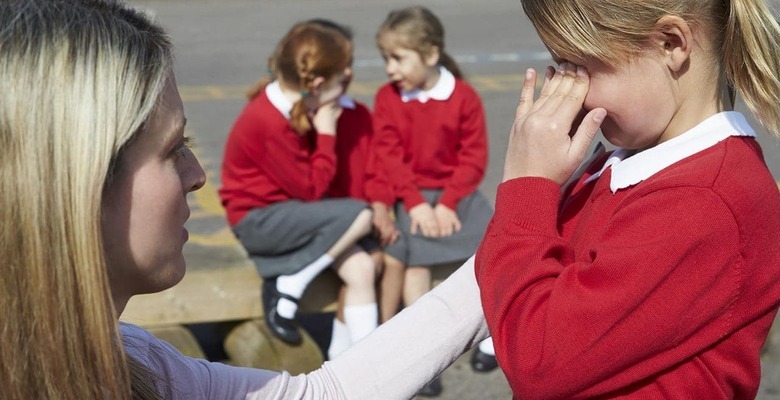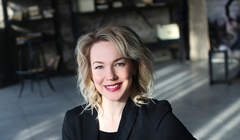
Adults choose to move to new countries for many reasons, from professional advancement to political convictions. They can make plans and anticipate the potential problems that may arise during emigration or temporary sojourns abroad. Despite these preparations, they may still experience difficulties adapting. How do children fare when their parents take them to foreign lands, sometimes unwillingly and without the opportunities to prepare available to adults? Kommersant UK looks at how to help children settle in British schools and the subtle pitfalls of the British education system awaiting unsuspecting parents.
In Russia, four-year-olds are still going to nurseries where their routine includes a daytime nap, while in Britain, their peers are already putting on uniforms and starting to go to preparatory classes for school (reception) and at five they start Year One. This means that on moving from Russia to Britain, virtually all school-age children automatically end up skipping forwards two years in the education system, so, as well as having to learn English, they're required to catch up with the school syllabus, not a task all children find a piece of cake.
Expat Child Syndrome
A special term has been coined to describe the emotional stress children may experience on moving to a new country; Expat Child Syndrome. Children of all ages are susceptible, but those from ten to 15 are especially vulnerable; the rupture with their familiar surroundings and social circle is experienced especially acutely when combined with hormonal changes in their bodies. The syndrome may cause different symptoms. It can lead to changes in behaviour, with younger children experiencing difficulty expressing their feelings, suffering from insomnia or refusing to eat and older children sometimes becoming aggressive. Usually talkative children may suddenly prefer solitude, reclusion and apathy. "You have to understand that it's more difficult for children than for us", says maths teacher and online school founder Svetlana Vodolazskaya, who moved to England with her family seven years ago. “We made the decision ourselves, but our children had it made for them, so we're responsible for helping them to adapt”.
Fortunately, with the help of parents, the symptoms of child expat syndrome usually disappear over time and only occasionally do more serious psychological problems develop requiring the intervention of specialists.
One move and three different outcomes
When Svetlana Vodolazskaya emigrated to Britain her son Zhenya was 11, her daughter Taia was ten and her youngest son Petya was two and a half. Each was affected differently by the move. "Adaptation turned out quite differently as we had supposed," remembers Svetlana. “They told us: ‘You'll get there, send them off to school and they'll start to speak English in half a year and in nurseries, it doesn't matter at all to the kids what language people speak’. But we all ended up having different experiences”.
As they are both of a similar age, in Russia, Zhenya and Taia were both in the fourth year. In Britain, they were assigned to different years, at different educational establishments. This happened at the end of the school year, so her 10-year-old daughter went to Year Five and her 11-year-old son joined Year Six, the final year at the local primary school.
“On coming to the school, my son Zhenya had a very hazy grasp of the language, but he threw himself into things and started to talk to everyone, so he adapted quickly” Svetlana recounts. “When he went to secondary school, he was very lucky; the school had arranged special classes for new arrivals. There were eight people in their group and they were taught English and science subjects separately, while some subjects were taught with the other children. This helped him to fit into school life very quickly”. Svetlana's daughter's first experience of a school in Britain wasn’t so successful: “Taisia is a high achiever and leader by nature, so she got the hang of English very quickly and started to talk to everyone. But in the new Church of England school she found herself in, in a small village, she was an outsider. The other children's parents had known each other since childhood. Their families had been going to the school for generations, so it was a very close-knit community and Taia the foreign girl couldn't fit in. The other girls took a real dislike to her. No one upset her or teased her, but she had no friends or socialising and she came home from school very sad”.
After less than a year and a half in England, Taisia prepared for and successfully managed to pass some extremely difficult exams on an equal footing with British children, including those in English and maths. She was admitted to an academically strong grammar school for girls. They held extra lessons for non-native speakers of English once a week. Although some children teased Taia, she made some good friends: “There were lots of foreign-born children with the same background. Yes, there were episodes of bullying because at first, she had a strong accent which she afterwards lost. This was resolved fairly quickly with the help of the school and her friends who would come to complain when somebody was teasing her. We didn’t even know at the time; Taia only told us about half a year later, post factum” says Svetlana.
Their youngest son Petr had perhaps the most unexpected experience of settling in: “They told us there was no need to worry because children who emigrate when small are great at adapting. At two and a half, Petya had an excellent command of Russian and understood what was going on around him. But when, at three, we sent him to an English nursery, he was deeply perturbed as he didn’t understand anyone and no one understood him. We took him to the nursery for three hours, during which time he cried and refused to communicate with the outside world and things only got worse. We gave it a month but we ended up taking him out of the nursery, after which we started to go to different playgroups together”. At five he started school, where he met a Russian girl called Liza who was a couple of years older than him. Teachers regularly asked her to interpret what he had said or what they wanted him to do. Liza mentored him for the first year and a half and whenever Petya started to feel uncomfortable, they called for her straight away so she could help them understand why. Then Petya started to speak English well, without errors in his speech.
EAL - English as an Additional Language
The British education system uses the term English as an Additional Language (EAL) to describe the classes for these children. Statistically, for more than a million primary school children and half a million in secondary school, English is not a native language. Most schools have resources and programmes to support these pupils. Children are assigned to specialised support groups and paired with so-called, ‘Buddies’; students who speak the languages of the countries the children have come from.
Artem, the son of HR specialist Anna Bogacheva, was in the first year of a Russian School prior to moving to Britain. In London, he was sent straight to Year Three without any knowledge of English. Anna remembers: “When Artem went to that school, which was Catholic, the teacher immediately installed an application on her phone to translate from Russian to English. To support my son, his class started a project to learn about Russia. He was signed up for the gardening group and in a couple of months, he started to speak English”.
School syllabuses and hidden pitfalls when talking to teachers
Both Svetlana Vodalazskaysa and Anna Bogacheva believe it's better not to completely delegate learning English and some other subjects to the school. Both mothers hired English tutors for their children and taught them maths themselves. Because of the difference between the school syllabuses, one area where Artem needed extra help was learning the times tables.
Svetlana tells us of some deeper problems children having arrived from Russia encounter during maths lessons: "Mathematics is a hard science. When we discuss exercises using formulas, it's not enough to understand them approximately; you must understand exactly. When a child only knows a third of the words in an exercise they can only have an approximate understanding of what has been asked of them, so their answer will be even more approximate. For example, imagine the following exercise: ‘On a street, there are X many detached houses and Y many semi-detached houses. How many families live on the street?’ So the child comes and says ‘I understand roughly three words from this exercise. I don’t understand “detached” or “semi-detached” and I don’t know how many families there are in a house because I don’t know how many flats there are in them’. So we start to figure things out. We look at the pictures and we realise that in each semi-detached building, there are two families and one family in each detached house and there are no flats. Each exercise opens up practically a whole new world for us. As for money and how life is organised, well, children don’t understand half the words. They are about local life here and the local specifics…. We learnt to understand what the exercises were about. I see the same problem with my students. Parents who have moved here from Russia often have trouble getting their heads around it. How can it be that their child is behind when the teaching of maths in Russia is considered to be amongst the strongest in the world? Children can't understand the language used; ‘terms’, ‘sums’ and ‘products’. This leads to an awful lot of mistakes”.
One of the commonest difficulties recently arrived parents encounter is a lack of experience talking to teachers at English schools and their inability to decode what exactly is meant by the traditional teachers’ praise of ‘Well done’: “It's not always worth believing teachers when they say everything is great," Anna warns. “Teachers usually only say positive things to kids but it doesn't mean they have no problems with their learning. We wasted several months before we realised that Artem needed extra help”.
Another problem is that in British primary schools, unlike in Russia, there are no universally used textbooks, so it can be quite difficult for parents to work out exactly what their child is doing, what topics have already been covered and what still must be learned. Teachers' reports do not always clarify this. Svetlana told us: “In Russia, teachers mostly criticise kids while in England they praise them. Parents can't read between the lines to understand teachers' reports and what they say about children. If it says ‘We wish your child success in the exam’ this may mean that they haven’t learnt anything at all and only luck will help them. As a rule, it isn't just a gentle wish for everything to be well. Usually, the penny drops for parents that something is not right at the start of Year Nine, when teachers first give them some serious predictions about their possible grades at GCSE (the exam on finishing Secondary School). At first, they say: ‘Everything's fantastic, everything's great, you've got a wonderful boy’ and then it turns out they think the child will only get a four in the exam (two in the Russian system). But the teachers are calm: ‘He's adapted so well, he enjoys studying so much, but there we are… it's a low mark’”.
Psychological adaptation
As well as the linguistic and academic aspects, of course, it is essential to prepare children to adapt to school in Britain psychologically. The child psychologist Svetlana Okhotnikova advises breaking psychological preparation down into different stages.
The first stage is before moving to the country. If you already know what school the child will go to, it's worth finding photographs of it, checking its website, discussing the school uniform, looking at pictures of the teachers and trying out the child’s new role: “You'll be a student at such and such a school”. If the school is as yet unknown, you can look at photographs of different schools and places in the neighbourhood where you might settle and use online maps to set up routes in Google Street View. The more information you have about the new school, the less stressful it will be for children.
The second step is after you have moved. On the first day of school, seek an opportunity to take a walk nearby and find a cafe you could visit after lessons to cast out ‘rocks’ or ‘anchors’ and make the child feel more secure. It's best to visit the school at a quiet time when it's not hectic so the child can wander calmly around the building and get to meet the teachers ahead of time. On that first day, try to spend as much time as possible with the child. Collect them from school, support them and praise them, don't ask them about anything and remind the child that each day it will get easier and easier.
The psychologist says that when adapting to new conditions, you have to consider various potential anxieties.
Usually, the child is afraid they won't find any new friends at the school. Tell them straight away that in many schools, pupils are assigned study-mates or ‘Buddies’. Remember that English schools have become accustomed to new children, including those from other countries. You can remind the child about their strong points: “Being friends with you is great because…” reminisce together on how they have previously made friends at clubs or after-school groups. Remind the child of their achievements to make them feel self-confident.
Another source of anxiety may be the fear of getting lost at a big school. Reassure the child that this won’t happen and everything will be alright.
Another important point is to give the child time. Yes, adaptation will take a certain period, from a week to several months. During these few months, the child won't be themselves. They may complain about the food, the school and friends. Listen to them, support them and hug them. Resist the urge to demand top grades. Let the focus be on acclimatisation. When the child begins to be more relaxed on heading off to school in the mornings, saying: “Bye mum! See you in the evening!”, this will be a marker that everything is going successfully.






